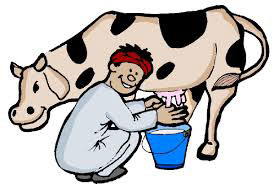CHENNAI, December 11: The incidence of milk-borne zoonotic diseases — transmitted from animals to human beings — is on the rise while there is a lack of awareness about such diseases among milk producers, said A K Srivastava, vice-chancellor and director, National Dairy Research Institute (NDRI).
NDRI data shows that micro-organisms like E-coli and mycobacterium paratuberculi can survive in frozen foods for many days and several micro-organisms isolated from dairy milk are found to be resistant to fourth generation antibiotics.
“Further, if an antibiotic is injected into a lactating cow, the milk should not be consumed for a stipulated period. But no one follows this norm,” he told reporters after his inaugural address at the annual conference of Society of Toxicology (India) on Tuesday. Similar danger remains embedded in meat, he added. Epidemics caused by Rota virus and Ebola, which are mostly zoonotic diseases, are linked to consumption of meat with Ebola due to eating chimpanzee meat. “Enteric hemorrhagic is a disease-causing organism found in milk and animal products. It is prevalent in the United States but there is not enough data in India,” he said. Of 1,407 pathogens, 816 originate from animals.
About 70% of organisms that caused emerging and re-emerging diseases in humans in the last two decades were of animal origin. The director said there is a rise in TB cases being spread to humans from cattle.



